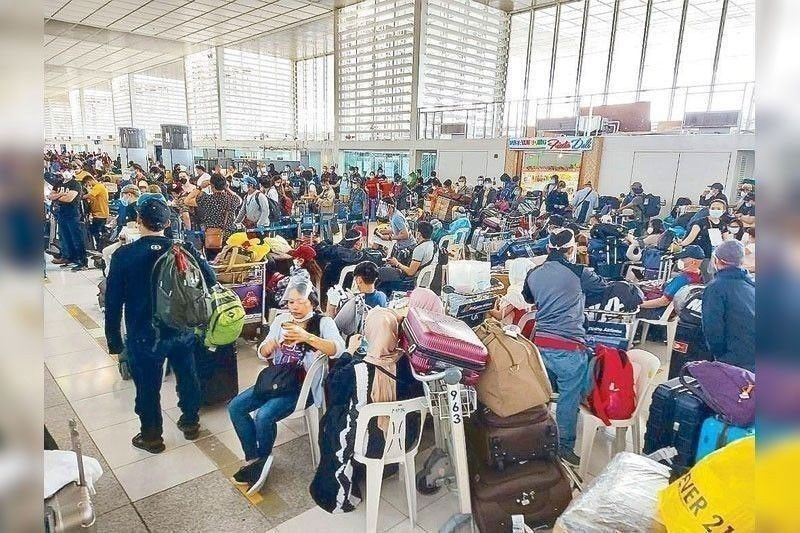Recruiters in surrogate trafficking face gravest penalty – DMW

MANILA, Philippines — The Department of Migrant Workers (DMW) vowed to impose the “gravest penalty” on the recruitment agency involved in the trafficking of Filipino women used as surrogate mothers in Cambodia.
“We will look closely into that and definitely, if that is true, then we would have to issue the gravest penalty that we can issue against that agency. Because never before had we allowed the deployment of OFWs (overseas Filipino workers) along those lines,” Migrant Workers Secretary Hans Leo Cacdac told reporters at Malacañang last Thursday.
“We honor the rights of the women who were supposedly apprehended and we are willing to assist them together with the DFA (Department of Foreign Affairs). But still, if a Philippine recruitment agency is involved in the process and caused the deployment of the women, then we would have to look into this seriously and mete the appropriate penalty,” he added.
Cacdac said the Philippines has no migrant workers office in Cambodia, but his agency is working closely with the DFA to address the matter.
“Rest assured that we will do our best to find our possible interventions in coordination with our Department of Foreign Affairs,” the DMW chief said.
Earlier this week, the Philippine embassy in Phnom Penh confirmed that Cambodian law enforcers had rescued 20 Filipino women in Kandal province on Sept. 23 as part of efforts to enforce a law against human trafficking and sexual exploitation.
Of the 20 women, 13 are in various stages of pregnancy and are now sheltered in a local hospital, the embassy said.
Citing preliminary interviews, the embassy said the women were recruited online by a person whose identity and nationality have yet to be determined conclusively.
The recruiter with an apparently assumed name arranged for the women to travel to another Southeast Asian country but eventually sent them to Cambodia where surrogacy is banned.
The embassy said it is closely coordinating with Cambodian authorities for the speedy resolution of the case.
It also vowed to continue cooperating with law enforcement agencies and international partners to “resolutely and proactively” address human trafficking in all forms.
Senate probe sought
Meanwhile, Sen. Risa Hontiveros is calling for an investigation into the cases of the women trafficked in Cambodia.
Hontiveros filed Resolution 1211, directing the Senate committee on women, children and family relations to conduct an investigation, in aid of legislation, into the reported cases of women being trafficked abroad to become surrogates as part of an infant trafficking scheme.
“An investigation is crucial to identify gaps in current legislation, including but not limited to reproductive labor and Republic Act (RA) 10364 or the Expanded Anti-Trafficking in Persons Act, to prevent the proliferation of this new form of human trafficking scheme in the country,” Hontiveros’ resolution declared.
The senator said the DFA alerted the public of this new form of human trafficking scheme targeting Filipino women.
“The outbound human trafficking of these 20 women was facilitated by a Philippine agency, making it of utmost importance to identify lapses in law enforcement to effectively crack down on human trafficking schemes,” Hontiveros said.
RA 10364 prohibits any person or entity from recruiting workers with the promise of domestic or overseas employment or training, with the intent of engaging them in prostitution, pornography or sexual exploitation.
It also bars any person from providing, adopting or receiving a child for the purpose of exploitation or trading them.
The Philippines ratified the United Nations Convention on the Rights of the Child on Aug. 21, 1990, which declares that states shall take all measures at the national, bilateral and multilateral levels to prevent the sale of children “for any purpose or in any form.”
The UN Special Rapporteur Report on Surrogacy and the Sale of Children highlighted that international commercial surrogacy networks move across different countries as laws on surrogacy change “in response to abusive practices” to ensure the continuation of their businesses. — Cecille Suerte Felipe
- Latest
- Trending






























